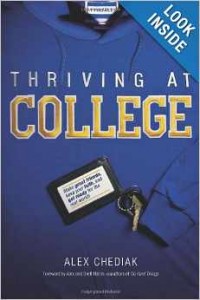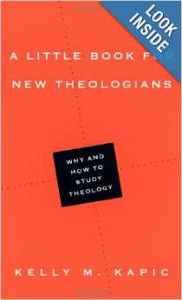
God calls us to be abundant in doing good, but you don’t have to run to the hills and leave the world to do this good.
-Matt Perman in What’s Best Next.
Jesus said in His Sermon on the Mount that we are “the light of the world.” Therefore, we should “let our light shine before others, that they may see our good deeds and glorify our Father in Heaven” (Mt 5:14-16).
As Christ followers, we are to go about doing good. But where and when do we perform good works? Is it only on Sundays or when we volunteer at a soup kitchen? Matt Perman, in the beginning of his book What’s Best Next, seeks to answer these questions. He writes that “we tend to have a very narrow view of good works. We think that they are rare and special things that we do every once in a while, like going to Africa on a mission trip” (p. 76).
Understanding good works as only those special things we do every now and then is dangerous. It leads to living “disconnected lives.” As a result, we don’t see our everyday lives as venues for good deeds. One of the main reasons Perman wrote What’s Best Next was to help us to see everything in a “new light so that [we] can become an agent for good, right where [we] are, to the glory of God” (p. 80).
When we answer email, go to meetings, cook dinner, pick up kids from school, etc…, these activities are “not just things we are doing.” According to Perman, they are good works as they provide us with an opportunity to “make a contribution” and to leave “things better than [we] found them” (80).
“Good works,” writes Perman, “are not just spiritual things we do, or hard and rare endeavors.” Whatever “we do in faith, which includes the mundane activities of everyday life like raising kids, going to work, and even tying our shoes” can be considered good works (p. 78).
Perman helped me to see that the ordinary activities of my day might not be so ordinary after all. Returning a phone call might lead to an opportunity to encourage. Smiling at the check out clerk at the local store and sincerely asking about his or her day could be the first caring words he or she has heard all day. And organizing your schedule, your desk, and your to do lists, as mundane as these things may seem, are really the things that, if organized well, will result in freeing up more of your time to serve those around you.
So today, if you really begin to think about doing good, but you feel overwhelmed with the mundane tasks of work, remember that they may not be as mundane as you think. However, you still might need to think about getting organized and this is where What’s Best Next by Matt Perman can be of help. It has some practical tips that will help you in becoming a bit more ordered.
Remember that planning and organizing your days, weeks, and months are not ends within themselves. Doing these things matters, but they do so in that they lead you to more profitable work. And becoming more profitable and productive ultimately means you being “light in the world”–the doing of good to those around you.




